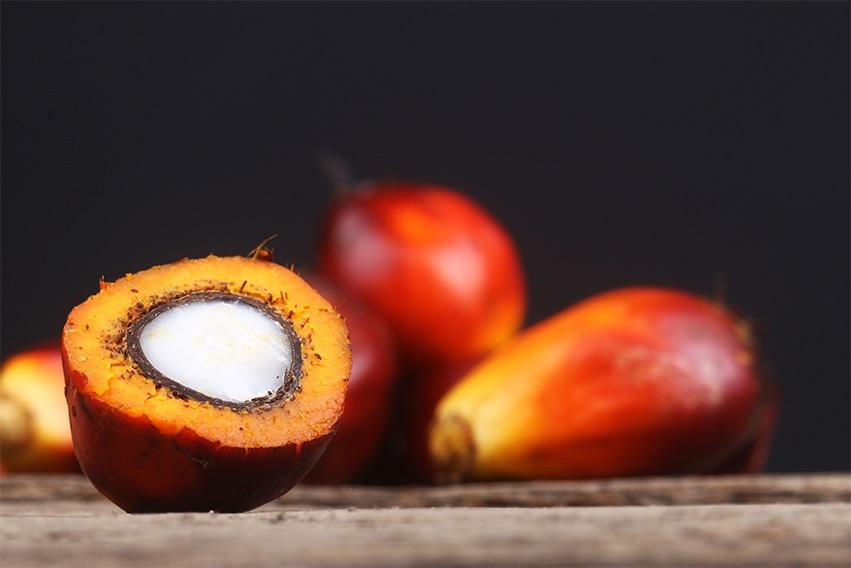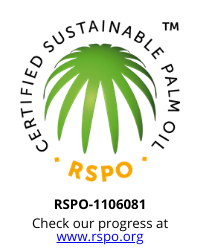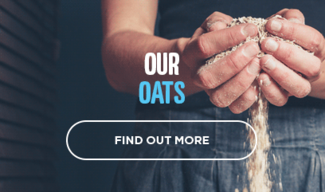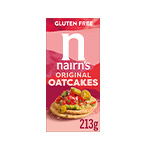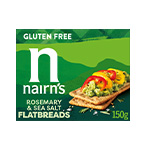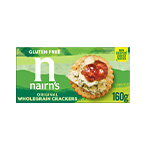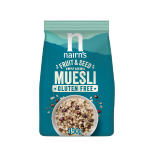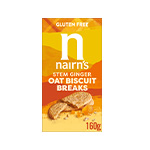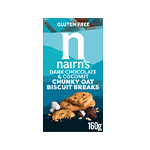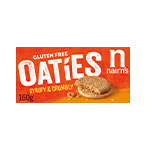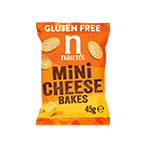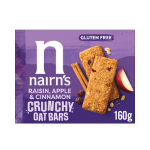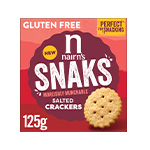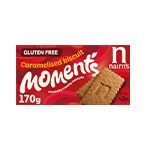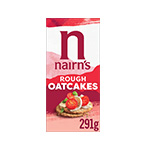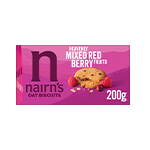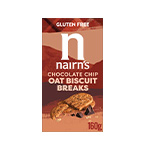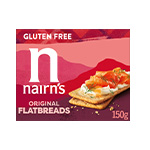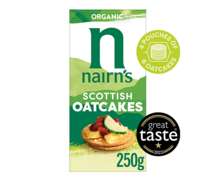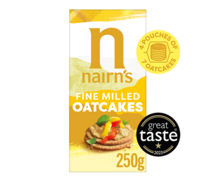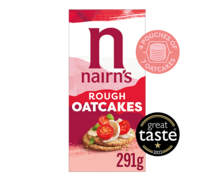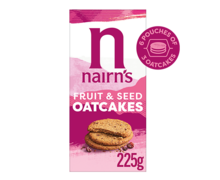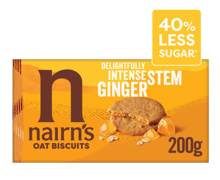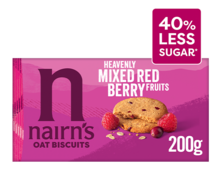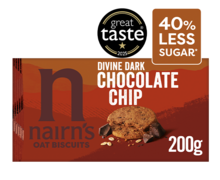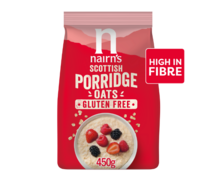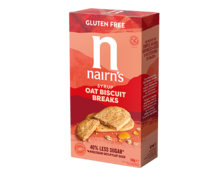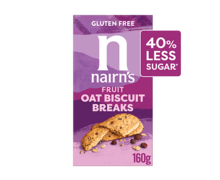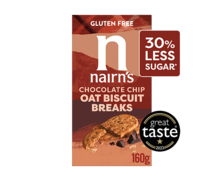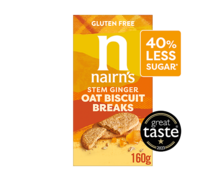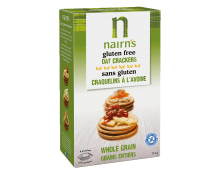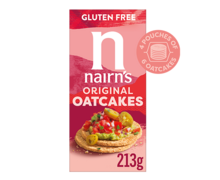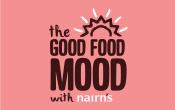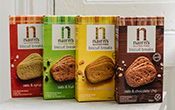Frequently asked questions
We seek to operate with transparency and ethics when it comes to our use of Palm Oil. At a time when just 19% of the world's total palm oil production is classified as sustainable (Source: RSPO), we are proud to be 100% certified by RSPO (The Roundtable on Sustainable Palm Oil) and buy only from a segregated supply chain for Nairn's branded products.
If you would like to know more about our supply and use of sustainable palm fruit oil, read on.
Q. How is sustainable palm fruit oil different?
Here at Nairn’s, we are very aware of the environmental issues surrounding the production of palm oil and therefore work with the with RSPO (Roundtable for Sustainable Palm Oil) to ensure ALL the palm fruit oil we use in Nairn's branded products is sustainably sourced. This means the palm oil we use is made in such a way that you can be confident production is sustainable, and produced without causing harm to the environment or to society. If you have any general sustainable palm oil enquiries, you can contact the RSPO directly on askRSPO@rspo.org or visit their social media channels.
The RSPO complete strict audits and checks to ensure that producers comply with their criteria for sustainably sourced palm oil and that orangutans and other wildlife are not at threat. Such criteria include measures to protect soil fertility, waste disposal, water management, support of local communities and crucially that new plantations have not replaced primary forest or high conservation grade areas.
Other conservation bodies such as the World Wildlife Fund also support the use of palm oil that is sourced responsibly. With palm oil the most commonly used vegetable oil in the world, they talk about how the “WWF envisions a global marketplace based on socially acceptable and environment-friendly production and sourcing of palm oil. We aim to encourage increased demand for, and use of, goods produced using such practices”. A link to a helpful section on the WWF website detailing key things you should know about Palm Oil can be accessed here.
Nairn's also feature on the sustainable palm oil shopping list developed by Act for Wildlife to show those manufacturers who are committed to using only sustainably sourced palm oil in their branded products.
This article also provides a useful account on the sustainability vs boycott debate and is worth a read.
Q. How do consumers know that Nairn's are doing the right thing when it come to their palm oil practices?
Nairn’s have recently been recognised for our sustainable palm oil practices and we are now officially included in the World Wildlife Fund’s (WWF) global palm oil scorecard.
The WWF global palm oil scorecard is a global exercise undertaken every 2-3 years and has two key purposes:
- To serve as a tool for companies using palm oil to identify opportunities for improvement in their policies, operations, and sustainability efforts
- To provide reassurance to consumers on which brands are doing the right things when it comes to using sustainable palm oil
The key reason for Nairn’s undertaking this exercise was to have strong back-up information to demonstrate that we are amongst the most responsible when it comes to sourcing sustainable palm oil from a segregated supply chain. We were required to provide a lot of information which was independently verified by the WWF before our scores were awarded.
For the 2021 edition:
- 227 palm oil buyers were approached by the WWF to take part and assessed globally
- 60% of these companies are based in Europe
- The average score was 13.2 points out of a possible 24.
Nairn’s were well within the top 25% of respondents scored 16.5 out of 24.
The WWF say: “whilst there is nobody achieving full marks, the 2021 scorecard is a reminder of the tremendous progress that has yet to be made. But, the commendable performance of some companies is proof that sustainable palm oil is achievable”.
Full details on the what, the why and WWF recommendations can be found here on the WWF Palm Oil Scorecard homepage https://palmoilscorecard.panda.org/#/home
Q. What does the RSPO have to say about environmental impact?
"RSPO acknowledges that issues such as deforestation, labour rights, and damaging effects on nature and the environment are not uncommon in the agricultural sector, including palm oil; particularly when grown unsustainably. However, when grown sustainably and to RSPO standards, oil palm plantations and the environment can co-exist.
We’ve embarked on a continuous journey to make sustainable palm oil and market transformation a shared responsibility. We have systems in place to ensure that RSPO Certified plantations abide to the standards set by the RSPO. These systems include third party certification, a system of accreditation for certification bodies, supply chain certification to the end user, traceability provided via the PalmTrace system, and an open and transparent grievance mechanism. Anybody can submit a complaint to RSPO and RSPO wants to ensure that aggrieved parties have reasonable access to sources of information, advice and expertise necessary to engage in a complaints process on fair, informed and respectful terms. Those who may face particular barriers to the Complaints System can be provided assistance through the RSPO Dispute Settlement Facility.
RSPO fully recognises the challenge of reaching 100% sustainable palm oil cultivation that respects biodiversity, natural ecosystems, deforestation, local communities, and workers in palm oil producing countries. But without pressure and demand for sustainable palm oil from developed nations, the likely outcome is more unsustainable palm oil. For this reason, the RSPO calls on all European industries and stakeholders to move towards 100% certified sustainable palm oil by 2020. Ultimately it is the vision of RSPO is to transform markets to make sustainable palm oil the norm."
(Provided by the communications department at the RSPO, September 2018, askRSPO@rspo.org)
Q. Can you prove you ONLY use sustainable palm oil?
Yes. We only use fully sustainable palm fruit oil in Nairn's branded products - 100% certified by the Roundtable on Sustainable Palm Oil (RSPO). This RSPO website shows you that we have to prove to an external auditor that we have purchased enough sustainable palm fruit oil to make all the stock that we sell where we state the use of sustainable palm.
We also have to prove that we keep it separate in our storage areas and that all recipes are correct as well as regularly checking that our suppliers are certified with RSPO. Our certificate is reviewed and renewed by RSPO annually.
You’ll see on the RSPO website here the difference between the different grades of certification. In Nairn's branded products, we use palm fat which meets the standard for the segregation model, so we can be absolutely sure that the palm fat we buy has always been kept separate from non-certified palm products.
Q. What is a segregated supply chain and why is it important?
We go one step further to ensure that ALL the sustainable palm oil we use in Nairn's branded products comes from a segregated supply chain. This means that the certified sustainable palm oil has to be sourced, milled, refined and manufactured separately from uncertified sources (the latter uncertified sources being where most of the negative press comes from.) We regularly look at other ways to ensure that the Palm Oil we buy meets the strictest criteria, and as further developments are made, we will investigate them.
Please click here to find out more about the certification process, and the different grades of certification here.
For further information on replanting, you'll find details here.
Q. Why don't you use other oils e.g flaxseed, canola in your products?
Many people ask why we use Palm Oil at all. Palm Oil is one of the most used edible oils in the world. We use certified sustainable palm fruit oil in our oatcakes as it has unique functional properties other oils do not have. It is a non-hydrogenated source of fat which is naturally free of detrimental trans-fatty acids. Palm fruit oil is also cholesterol free, has good digestibility properties and contains a high level of anti-oxidants (vitamin E). It is also more stable than sunflower and olive oils and therefore less prone to rancidity, which is key to helping ensure consumers can enjoy great quality oatcakes time after time.
Q. What is the difference between Palm Fruit Oil and Palm Kernel Oil?
Palm fruit oil and palm kernel oil are not one and the same thing.
Palm fruit oil (as used in all Nairn’s branded products), is a non-hydrated oil that is free from trans fats. It is cultivated mostly in Columbia, Malaysia, Thailand, Indonesia and Papua New Guinea and the oil comes from the pressed flesh of the palm fruit. This oil typically contains equal amounts of saturated and unsaturated oils and is rich in micronutrients.
Palm kernel oil, is made from the kernel/seed of the palm fruit. Kernels are taken from the palm fruit clusters and pressed to produce oil. Unlike Palm Fruit oil which is cholesterol free, Palm Kernel Oil contains over 80% saturated fats and is also high in Lauric Acid which can have a negative impact on cholesterol levels and heart health.
Q. Do you ever investigate alternatives?
We have looked for alternatives to palm fruit oil, but have not yet found one which has the same functional properties as sustainable palm fruit oil which is carefully sourced from a segregated supply chain.
We’d also want to ensure that any viable alternative we did find is sustainable. Shifting demand to other vegetable oils could increase sustainability problems because compared to other crops (like soybean, sunflower or rapeseed), oil palms produce by far the most vegetable oil per hectare of land (4-10 times more), so switching to other vegetable oils may very well result in more primary forests being converted into agricultural land, not less.
